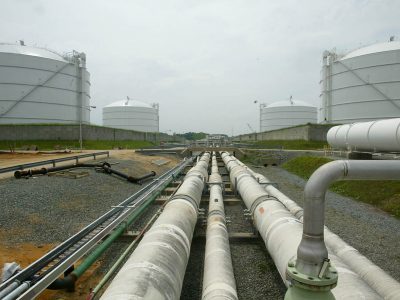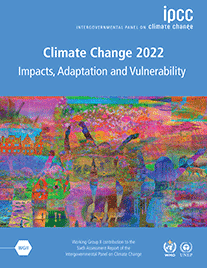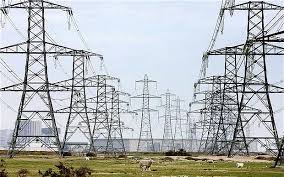St. Paddy Meets Modern Environmental Law
It's not a match made in heaven.
Department of the Environment, Climate and Communications An tAire Comhshaoil, Aeráide agus Cumarsáide Irish Republic March 17, 470 AD. Dear Mr. Saint Patrick, According to credible reports that have reached this office, you have been involved in the export (“banishing”) of snakes (reptiles of the suborder Serpentes) from Ireland. We are unable to find an export permit on file for these animals. As you are no doubt aware, a permit is required for the...
CONTINUE READINGGovernors’ Climate and Forests Task Force Kicks Off Annual Meeting in Heart of the Amazon Basin
12th Annual Meeting of GCF Task Force hosted by Governor of Amazonas in Manaus, Brazil, March 15-18, 2022
This week, on the banks of the largest river system in the world, Governors, environment secretaries and civil servants, Indigenous peoples and local community leaders, national governments, the private sector, and partner organizations will be meeting to discuss innovative partnerships and solutions to the threat of tropical deforestation at the 12th Annual Meeting of the Governors’ Climate and Forests (GCF) Task Force in Manaus, Amazonas, Brazil. This meeting ...
CONTINUE READINGPipelines, Emissions and FERC
From now on, carbon emissions from new pipelines will be one of FERC's key concerns.
On Friday there were two seismic shocks in the world of gas pipeline regulation. FERC has spent years resisting pressure to change the way it licenses new gas pipelines. A whole point of a natural gas pipeline is to deliver the gas to users who will burn it, thereby releasing CO2 into the atmosphere. FERC has steadfastly refused to take those emissions into account. The DC Circuit held that position illegal in an opinion released last Friday. That same day by coincidence...
CONTINUE READINGIt’s Not All CEQA’s Fault
Public process can actually be pretty important.
I first wrote a version of this post way back in July 2021, when Ezra Klein dropped a couple of lines knocking the California Environmental Quality Act (CEQA) into one of the op-eds The New York Times loves to perennially run about how California is actually the worst (I’m sorry it can’t be 80 degrees in March everywhere, guys). At the time, I thought it was possible his mischaracterization of CEQA was a one-off, but it’s now apparent that Klein has joined the all-...
CONTINUE READINGCLEE’s New Executive Director
Louise Bedsworth brings a unique depth of experience in environmental policy to the job.
I'm excited to announce that Louise Bedsworth is CLEE’s new Executive Director. It was no easy task to find the right person to run the center during such a crucial time for environmental and energy policy. Louise was previously the head of our land use program and a senior advisor to the California China Climate Institute at CLEE led by Jerry Brown. She is an MIT grad who went to Berkeley for graduate school, where earned a master's degree in environmental engineer...
CONTINUE READINGCalifornia Legislators Call for More Stringent Requirements for Oil and Gas
Students in UCLA’s California Environmental Legislation and Policy Clinic partner with State Senator Sydney Kamlager to draft letter to CalGEM on proposed public health rule
This post is co-authored by Julia Stein and Beth Kent. Neighborhood oil and gas extraction poses serious public health and environmental risks to communities across California – and campaigns by local advocates and political leaders over the last decade have pressed state agencies and local governments, including the City of Los Angeles and Los Angeles County, to better protect those at risk. While some local governments are stepping up to address these risks, a...
CONTINUE READINGFuture Shock
The latest IPCC report contains crucial new information about how soon and how bad climate impacts will be.
When the IPCC released its latest climate science report a few weeks ago, many commentators observed that the report should heighten our sense of urgency about climate action. Most of that discussion was at a very general level. It’s worth taking a closer look at some key findings and their policy implications. Here, I want to focus on several key points in the report. The 1.5 °C target. The Paris agreement calls for capping warming as near as possible to 1.5° for...
CONTINUE READINGCelebrating the Birth of America’s National Park System
Yellowstone--the World's First National Park--Created 150 Years Ago
American author, historian and conservationist Wallace Stegner once observed: "National parks are the best idea we ever had. Absolutely American, absolutely democratic, they reflect us at our best rather than at our worst." More recently, Ken Burns channeled Stegner in titling Burns' award-winning PBS documentary, "The National Parks--America's Best Idea." The National Park System celebrates its 150th anniversary this month. In March 1872, Congress...
CONTINUE READINGSmoothing the Path for Transmission Lines
Fights over who should pay for power lines may become much easier to solve.
New high-power transmission lines have to run a regulatory gauntlet to get approved. One of the biggest barriers, however, isn’t about whether the line can be built but who will pay for it. That has turned out to be a much knottier problem than you might think. A decision by the D.C. Circuit on Friday, however, has given the go-ahead for a rough-and-ready solution that’s far from precise but eminently reasonable. Hopefully this will serve as a template for other po...
CONTINUE READINGCarrying the Freight
Decarbonizing trucking comes with some unique challenges.
A quarter of carbon emissions from transportation come from heavy-duty trucks. They are also disproportionate sources of air pollution. Addressing these emissions will be challenging and will require a multi-prong strategy. For distances under a few hundred miles, electrification offers the most promising solution. California and fourteen other states plan to make 30% of new heavy-duty truck sales zero emission by 2030. That primarily means battery vehicles. We ne...
CONTINUE READING












